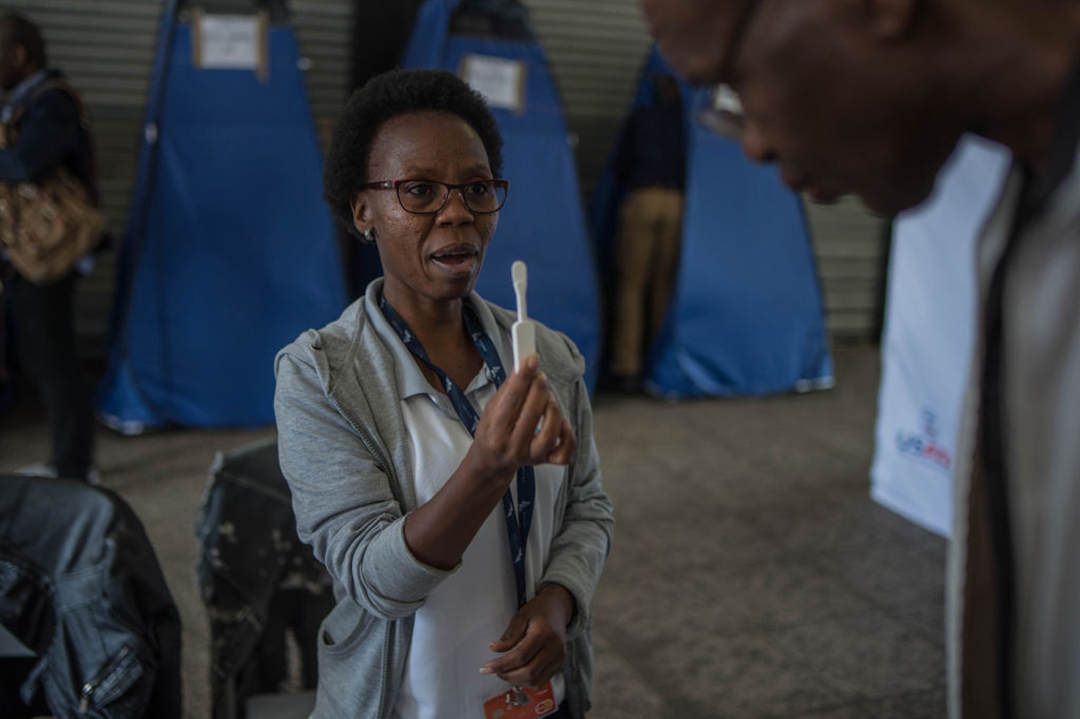South Africa at Risk of Being COVID-19 Variant ‘Factory’
ADF STAFF
More than 8 million South Africans live with HIV-compromised immune systems, a situation that makes them vulnerable to infection by COVID-19 and — if they become infected — potential sources of new variants as their bodies battle the virus.
In one study, an HIV-positive woman fought COVID-19 for more than seven months while the virus mutated rapidly in response.
Researchers at South Africa’s National Institute for Communicable Diseases (NICD) recently discovered variant C.1.2, the most mutated version of COVID-19 to date. It is a possible result of a similarly extended battle between a compromised immune system and the coronavirus.
“Any patient with a weakened immune system, for example those infected with HIV or cancer patients on immunosuppressive drugs, may be unable to clear the coronavirus as quickly as an otherwise healthy individual,” Catherine Scheepers, a senior medical scientist at the NICD, told ADF.
The longer such a person is infected with COVID-19, the higher the potential for mutations arising.
Mutations happen as a natural outgrowth of infection. They are the virus’s way to fight for survival against the body’s immune system. Every infection produces mutations, and most of them are harmless.
The trouble arises when a mutation occurs that helps the virus overcome the immune system and escape into the population. That’s what gave rise of the delta variant, which was first reported in India in May and quickly spread around the globe.
In Africa alone, the delta wave, which is just now receding, contributed to 72,000 deaths from COVID-19 between June and August, according to the Africa Centres for Disease Control and Prevention. That’s more than one-third of all the COVID-19 deaths the continent has reported since the pandemic began in early 2020.
Throughout the pandemic, South Africa has reported the continent’s largest total number of COVID-19 cases and deaths, due in part to its large numbers of people living with HIV, tuberculosis and other conditions that put them at high risk of infection.
Nearly 3 million cases of COVID-19 can also be seen as nearly 3 million opportunities for the virus to create deadlier variants. The beta variant, which went around the world in mid-2020, was first reported in South Africa.
“It is unknown how much HIV-infected individuals and other immunocompromised individuals contribute to overall, global variant evolution,” Scheepers said. “However, this is not a circumstance that is unique to Africa.”
Many of South Africa’s HIV-infected residents live in poor, rural areas on the fringes of public health campaigns. Clinics providing COVID-19 tests can be far from the people needing them. Disinformation and misinformation remain problems for public health workers trying to prevent the spread of the disease.
Meanwhile, South African health experts worry that a fourth wave of infections is on the horizon during the end-of-the-year holidays.
“There is good evidence that prolonged infection in immune-compromised individuals is one of the mechanisms for the emergence of SARS Covid-2 variants,” said Tulio de Oliveira, director of KRISP, the Kwa-Zulu Natal Research and Innovation Sequencing Platform. “South Africa really risks become one of the mutation factories of the world.”


If we are to expect a ‘4th,wave’ why have we just increased the numbers out outdoor gathers to 2000, increased numbers from 250 to 750 for indoor gatherings. Surely common sense says keep those numbers at their lower legal level, to help avoid or at least reduce risk for a 4th wave… Just a thought, not criticism, thinking how it would possibly help relieve opportunities for some super spreader events.